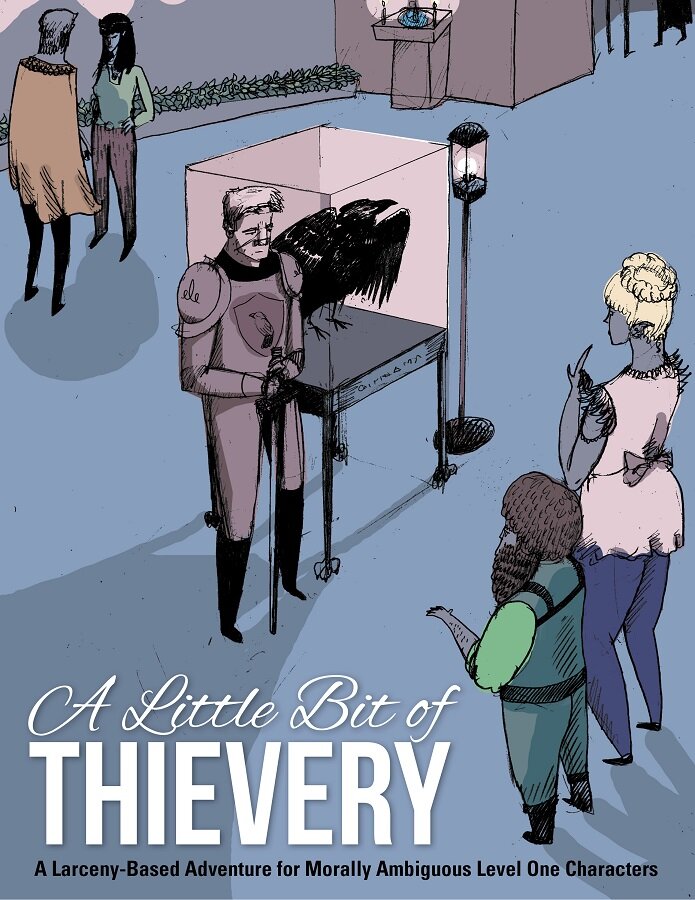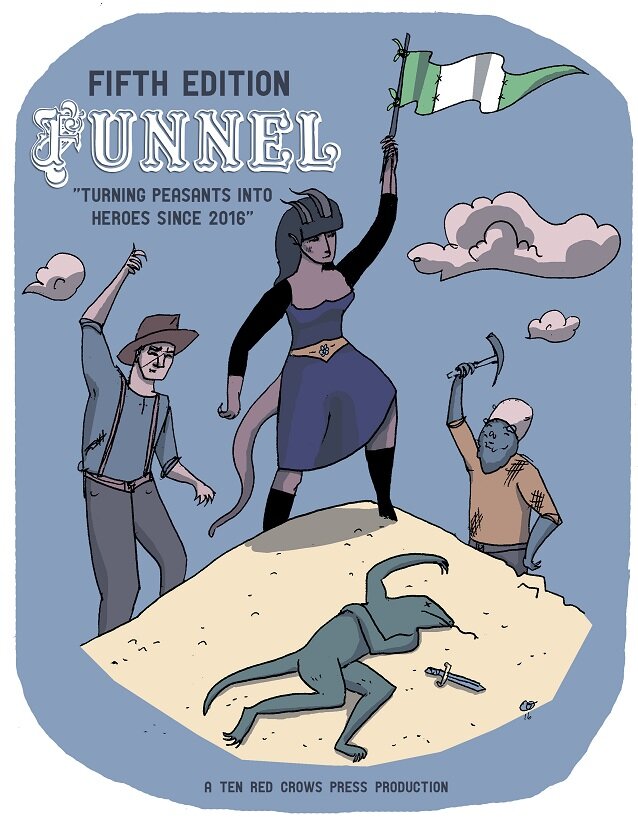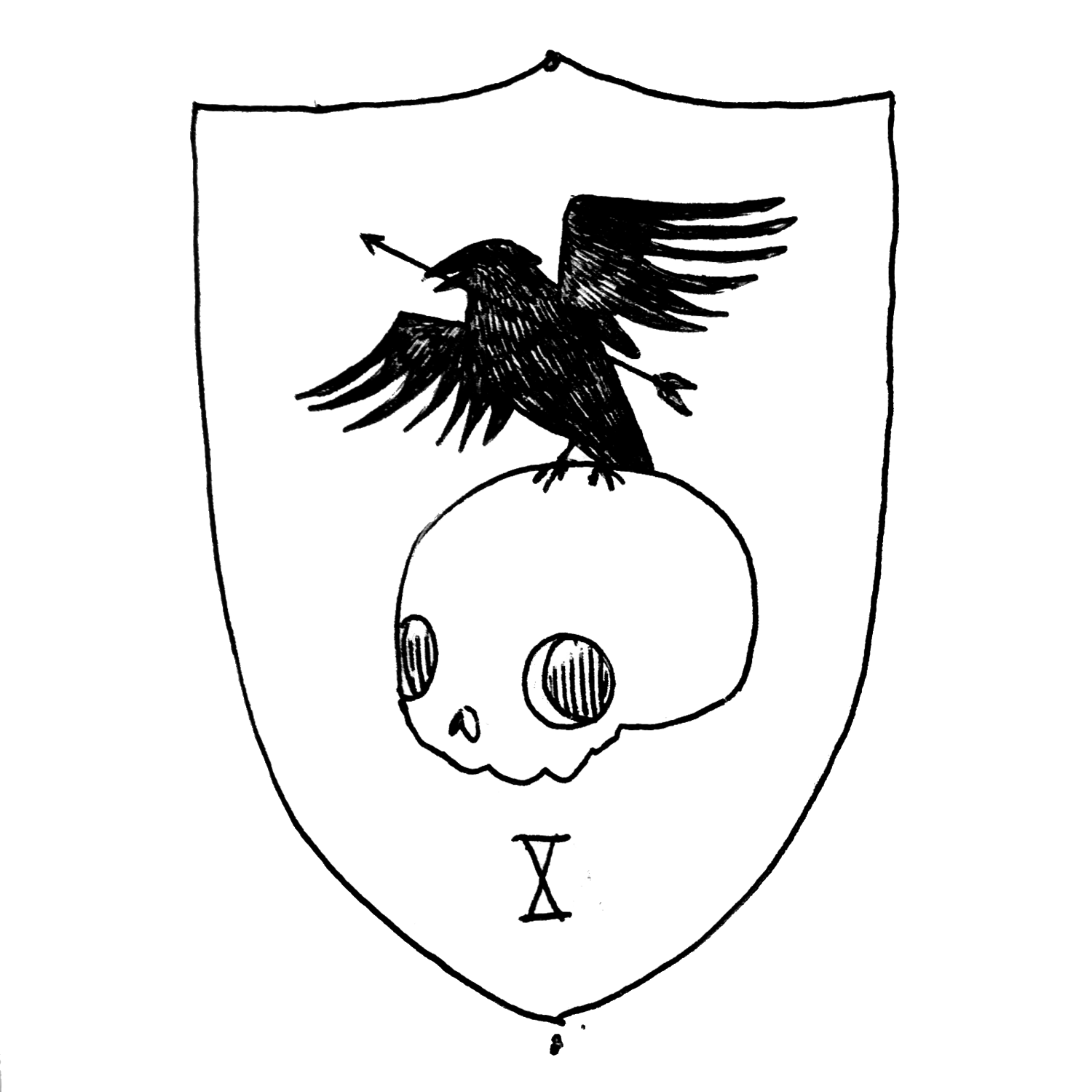Why back Shadowdark?
The discourse around Shadowdark has been growing, so I thought I’d throw in my two cents, as someone who backed it early. Here is why I backed it.
First, It’s simple. The game cuts out a lot of the chaff that bogs down the OSR genre. When emulating “old school play” there is this impulse to grasp mechanics from the before times (pre-3rd edition, circa 2000) that have long since gone stale and border on incomprehensible to new players. I enjoy Old School Essentials, but I do not like that ascending armor class (i.e., the higher the armor class the better) is an alternate rule. Also, when you make an ability check, you must roll under your attribute score (e.g., a success is rolling a 12 when your Strength is 14). Hence a “natural 20” can be, under certain situations, a death sentence. In the same vein, I like Basic Fantasy, but I don’t like that you must reference an Attack Bonus Table on page 46 for combat or a chart on page 153 for ability checks. Don’t even get me started on dragon breath saves or the thief’s d100 skill table that are in both games. This amalgamation of different mechanics isn’t impossible to understand, but it increases the mental load of learning to play, especially if you didn’t grow up with it.
Shadowdark replaces these inconsistent mechanics with streamlined and easily rememberable logic. When you make a save, check, or attack, you add your modifier and class bonuses and roll a d20. That’s it. It is clean and consistent. A higher number, whether it is your armor class or your d20 roll, is always better.
Second, while creating a simple system, Shadowdark keeps the rules that create emergent play. This is the hallmark of what makes old-school D&D awesome. Monster morale, reaction tables, and a very rules-light ethos enhance player choice and help build unintended stories. With morale, enemies can be frightened instead of fought. With reaction rolls, that room of orcs may choose an alliance as opposed to violence. Finally, a rules-light philosophy gives room to experiment at the table, so that anything may be attempted.
None of these individual ideas are particularly new, but nothing that I have found has this combination of simplicity while keeping the best the OSR has to offer. It is accessible (even if you only played 5e) and promises freedom without being a pile of crayon-scribbled napkins stapled together.
Honestly, I had an RPG like the Shadowdark kicking around in my head and even printed out an alpha version pamphlet (tentatively called “The Twisted Dark”, HA). Shadowdark feels like a better designer spent 3 years rigorously playtesting, refining, and perfecting this idea.
Here is the weird part: I am not the first person to say this.
I am going to posit that Shadowdark captures a standard that some of us were reaching toward: a refined version of the standard fantasy OSR game. Old School Essentials (and the other retroclones) were the first steps of taking all the inconsistent rules and versions of old-school D&D and reconciling them (and Pelor bless the people who did). Shadowdark represents the next step. The version where most of the chunky bolt-on mechanics have been cleaned up, simplified, and systematized.
For me, the magic of old-school play is how the game evolves at your table with your friends. It is how your house rules mix with the setting and the decisions of your players to create something new. It's your dungeon game played your way. It might be about running a bookstore, sealing in an ancient evil, or both, somehow. The rules and content at your table change to reflect that (and you better punch up a “bookseller” class).
For people who aren't initiated in the ancient, pre-2000 basement rites of older editions, the Shadowdark is a clean chassis ripe for encouraging your table’s folk art—infinitely hackable freedom without the baggage.






